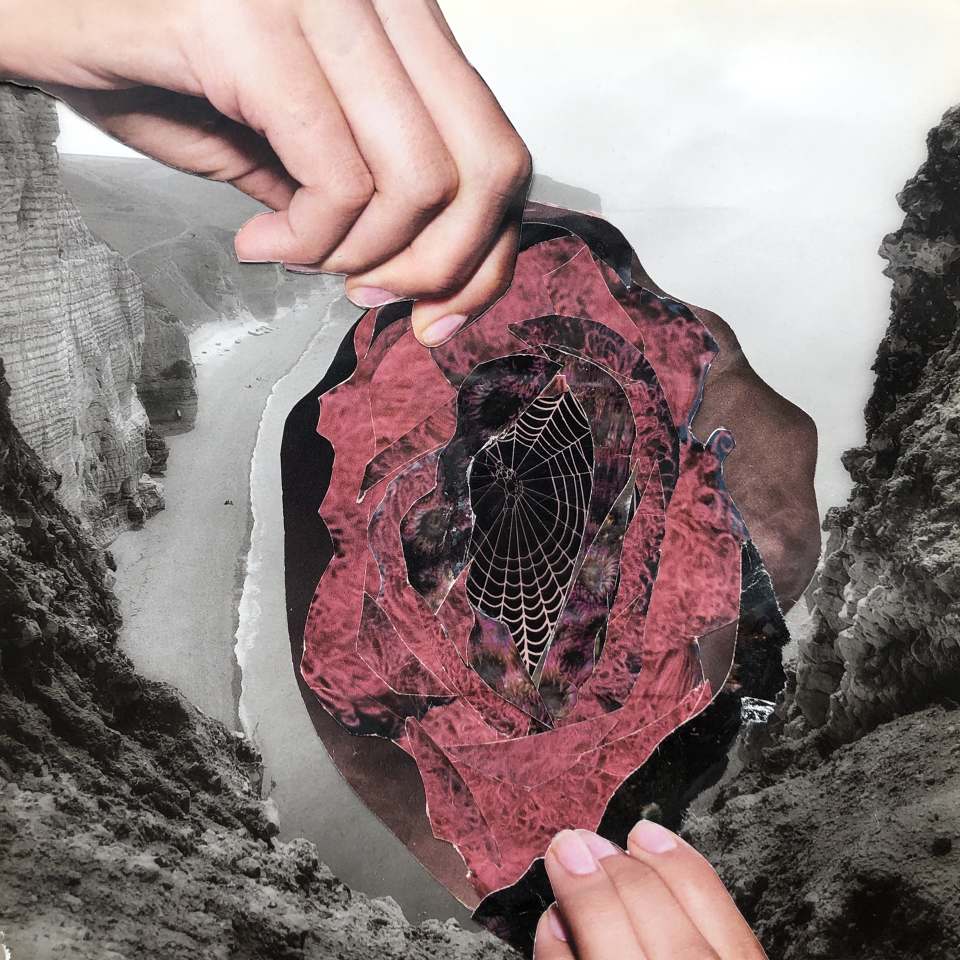Written by Cass Mensah
Art by April Beila
I had a hysterectomy at twenty-six years old, and most people that I told panicked. Unsure how to respond but deeply uncomfortable with the silence hanging between us, they would blurt out platitudes.
” You can always adopt!”
“Have you thought about freezing your eggs?”
I understand the impulse. As a straight-passing woman, my acquaintances, co-workers, and that dentist who asked if I had any recent surgeries as he shoved metal tools in my mouth, all assume that I’ve dreamt of having 2.5 kids and a white picket fence. I’m not surprised that my hysterectomy elicits anxiety. Nothing ruins small talk like a missing uterus.
But the thought of a fetus fighting my organs for space as it devours and depletes me of nutrients is the ultimate body horror plot. Cronenberg’s The Brood has nothing on me compared to that birthing video they made us watch back in middle-school.
The psychological torment of mothering is a close second fear of mine.
A month before my hysterectomy, the Supreme Court announced it would hear arguments for Dobbs v. Jackson Women’s Health Organization. I was working in Washington, D.C. as an attorney at a women’s rights organization. We knew that the conservative panel of judges agreed to hear this case so they could overturn the constitutional right to abortion. We knew that by overturning Roe v. Wade, more domestic violence survivors would be trapped in their homes. More pregnant people would die due to ectopic pregnancies. More people in prisons for aiding and abetting reproductive health care.
I knew, and was initially embarrassed to admit, that my imminent infertility would free me from many of the dangers of living in a post-Roe world.
Hysterectomy as respite. Hysterectomy as safety. Hysterectomy as freedom.
So, instead of mourning my infertility, I threw myself a hysterectomy shower.
If you ever find yourself online shopping for a uterus-shaped pinata, chances are, your real organ has not been good to you.
During a laparoscopic surgery, my gynecological surgeon noticed an (ultimately benign) abnormal growth on my appendix and performed an emergency appendectomy. While this change in plans prevented her from excising the tissue causing me immense pain, she did see enough to deduce that I likely have endometriosis and that my uterus was— and this is my paraphrasing—fucked.
Her actual words were that my uterus was “enlarged, misshapen and boggy.” By “boggy,” she meant that so much blood pooled in my uterus that when she pressed her surgical tools against it, the tools left an indentation. The state of my uterus indicated that I had a disease called adenomyosis. Essentially, my uterine lining shed each month but could not fully escape my body as it was stuck within the muscle lining of my uterus. A hysterectomy “cures” adenomyosis the same way amputating a foot would stop it from itching.
Despite the unpredictable events, overall, I was thrilled to receive external validation that my pain is not all in my head. My periods left me bed-bound, and the excessive bleeding forced me to spend a not-so-small portion of my salary on menstrual products. Every month, nerve pain radiated from my left hip and stopped me in my tracks. Like that theme song that gets stuck in your head, the chronic fatigue and lower back pain always hummed along in the background. I’d trade in my blood-soaked uterus for any amount of relief.
To be chronically ill is to embody contradiction. It is to be confronted and comforted by the limitations of the human body. I can name the terror of undergoing multiple surgeries and relish the fact that I will never have another period. I can mourn my life before I was sick and hold onto the hope of forming new connections from the comfort of my bed. To be chronically ill is horrible and it is beautiful.
Those who witness these battling emotions may call their manifestation a mental breakdown. But to blend laughter with tears, and fear with excitement is not proof of hysteria. Embracing these dualities is what keeps me sane. It is not crazy to respond proportionately to one’s extreme conditions.
Twenty minutes from the Supreme Court building, as law clerks drafted an opinion that would grant strangers control over pregnant people’s bodies, my partner and I hosted a dozen of our friends in our apartment for my hysterectomy shower.
We spun Talking Heads and Kate Bush records. We ate tamales and drank my favorite Malbec. We got too competitive as we played board games. For dessert, guests devoured cupcakes decorated with the phrase “cancel my cervix” in the icing. Our dog’s tail wagged the entire night. A true pandemic pup, this was the first time she was sharing space with so many people.
To end the night, I stood in the middle of my living room, encircled by my community, and smashed open a bright pink uterus-shaped pinata with googly eyes and a cartoonish smile. Individually wrapped candy and 100% cotton tampons spilled out of the uterus’ broken smile and onto the rug. My friends cheered. The dog howled. I could not control my laughter.
About the Author
Cass Mensah is a chronically ill civil rights attorney currently writing a collection of essays about her disabled body. Most days, she can be found on her couch watching horror movies with her husband, or at her local pottery studio making mediocre mugs. Find her here: @mensahsays

